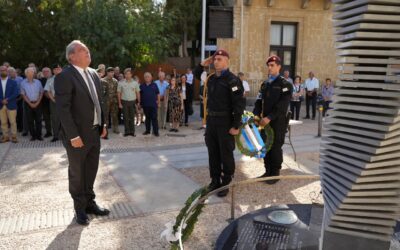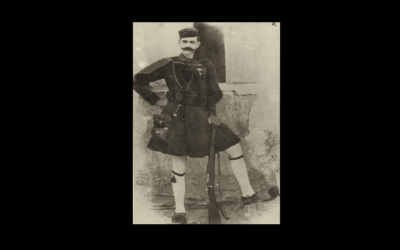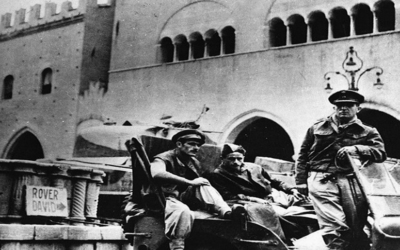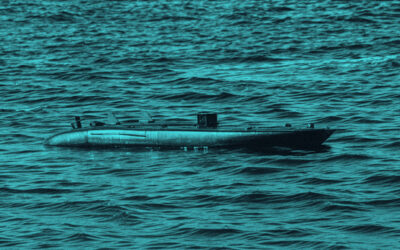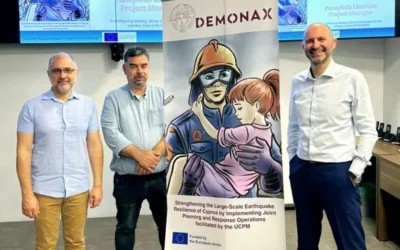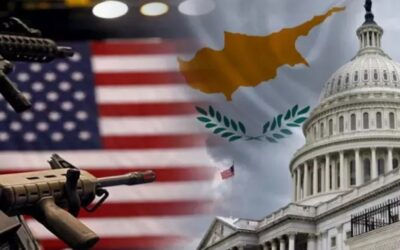The Minister of Defence of the Republic of Cyprus, Mr. Vassilis Palmas, attended the annual commemoration of the fallen of the 3rd…
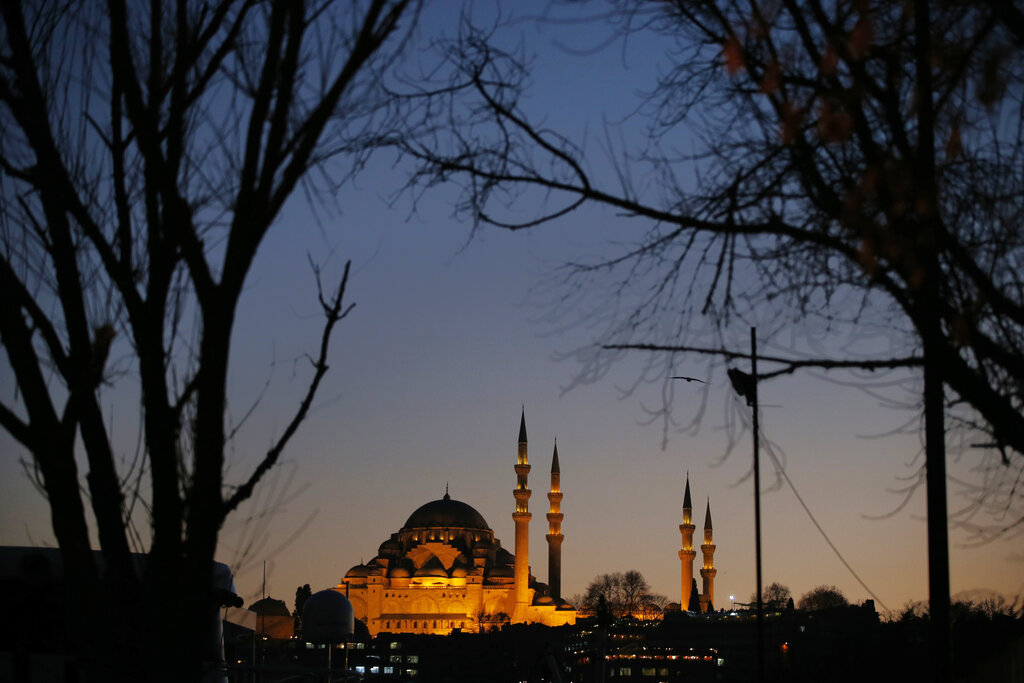
The fall of Constantinople in 1453 seems to be one of the deepest wounds in the Greek collective consciousness, similar to the Asia Minor Catastrophe.
So, like today, Constantinople fell. Ottoman troops under Sultan Mohammed II occupied Constantinople after a 53-day siege, putting an end to the Byzantine Empire. The siege lasted from April 6 to Tuesday, May 29, 1453.
Byzantium had already been weakened and divided for the last two centuries, a shadow of the old Empire. The Fall of 1204 by the Crusaders and later, after its recapture, in 1261, political and religious disputes, the inability to receive help from the West, the poor economic situation, and the flight of human resources led to gradual weakening and shrinkage.
The occupation of Gallipoli in 1354 by the Ottomans, which brought hordes of fanatical Muslim warriors to Europe, gradually encircled Byzantium, which in 1373 was subjected to the Ottoman sultan. Thus, the Fall came as an expected result of the uninterrupted expansion of the Ottoman Empire in the wider region.
The heroic resistance of Constantine Paleologos and a few thousand warriors could not save Constantinople from an enemy siege.
With the fall of May 29, 1453, the Greek continuity, which until then managed to overcome the reefs, reached a different extent, with the Ecumenical Patriarchate remaining to this day the last connecting link with Constantinople along with its last Greeks.
The conversion of Hagia Sophia into a mosque after 86 years by Turkish President Erdogan was a crime against history. As the Minister of Foreign Affairs, Nikos Dendias, stated in this regard: “Today, the transformation of Hagia Sophia, a World Heritage Site, into a mosque, as well as the vandalism of the Imperial Gate saddens every person who respects history.”
Thus, Constantinople and its fall will remain the inner longing of Romanism, a landmark reference. And as the Byzantine scholar, Eleni Arveler, has recently put it, “we are the only Balkan people who did not liberate the cradle of their genus, that is, Polis. We did not liberate Constantinople…”
Also read: 20/10/1995 | Resignation of NATO Secretary-General and the Agusta & Dassault scandal
READ MORE
120 years since the death of Pavlos Melas—The Hero of the Macedonian Struggle—Photos
The Armed Forces honor the memory of the ethnic martyr who gave his life for the liberation of Macedonia…
80 years since the Battle of Rimini – The Brigade that wrote golden pages of history
The “Rimini Brigade” wrote new pages of history for Greece, placing it in the camp of the winners. This success was linked to hope and…
FLANQ | AI-Powered Autonomous Maritime Solutions in Favour of European Security
In response to Europe’s growing security challenges in the maritime domain, FLANQ has launched as a new…
CERIDES | 1st Planning Conference of the UCPM DEMONAX – Cyprus Earthquake Full-Scale Exercise
CERIDES – Centre of Excellence in Risk and Decision Sciences of European University Cyprus had a strong presence during the 1st Planning…
EMAK | New Operational Boost with Eight INTRUDER SE Drones
The Ministry of Climate Crisis and Civil Protection is moving forward with the procurement of eight INTRUDER SE-type unmanned aerial…
KNDS France – METLEN | Partnership for the Production of the VBCI PHILOCTETES® in Greece
METLEN has entered into an exclusive partnership with KNDS France for the production of the latest-generation French 8×8 Infantry Fighting…
USΑ | Bipartisan Bill Submitted to US Congress to Lift Cyprus Arms Embargo
A bipartisan bill titled the “American-Hellenic-Israeli Eastern Mediterranean Counterterrorism and Maritime Security Partnership Act of 2025”…
AI Task Force | First Session of the National Committee for Artificial Intelligence of Cyprus
The first session of the National Commission for Artificial Intelligence (AI Task Force) was held, marking the official start of the work…










